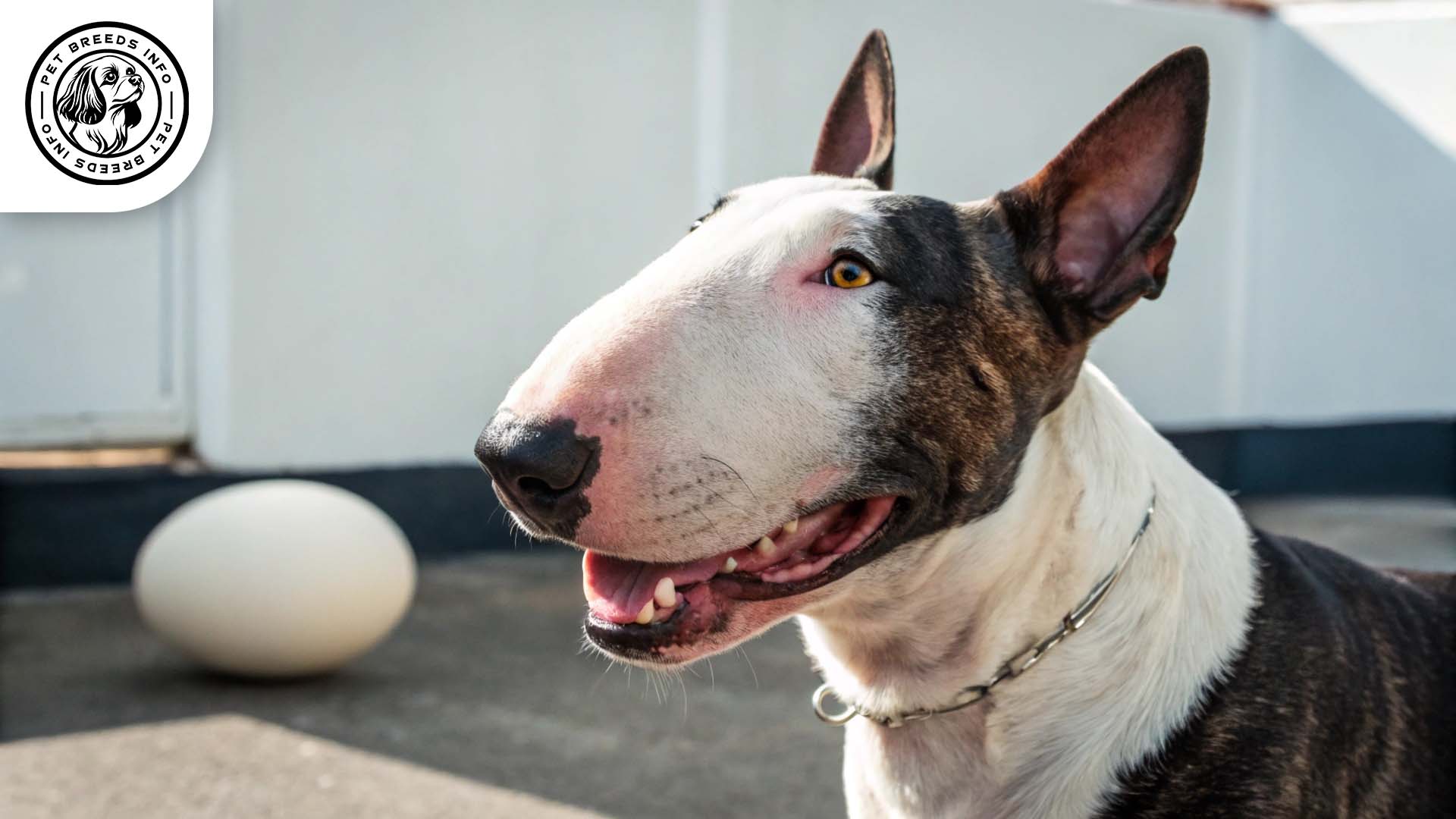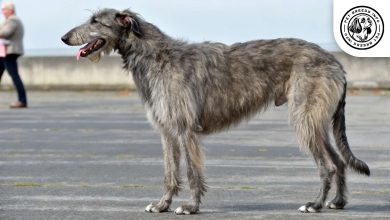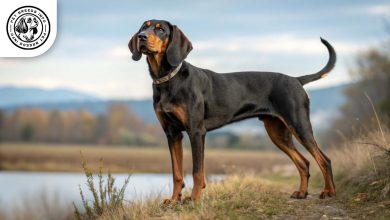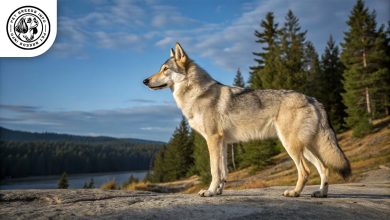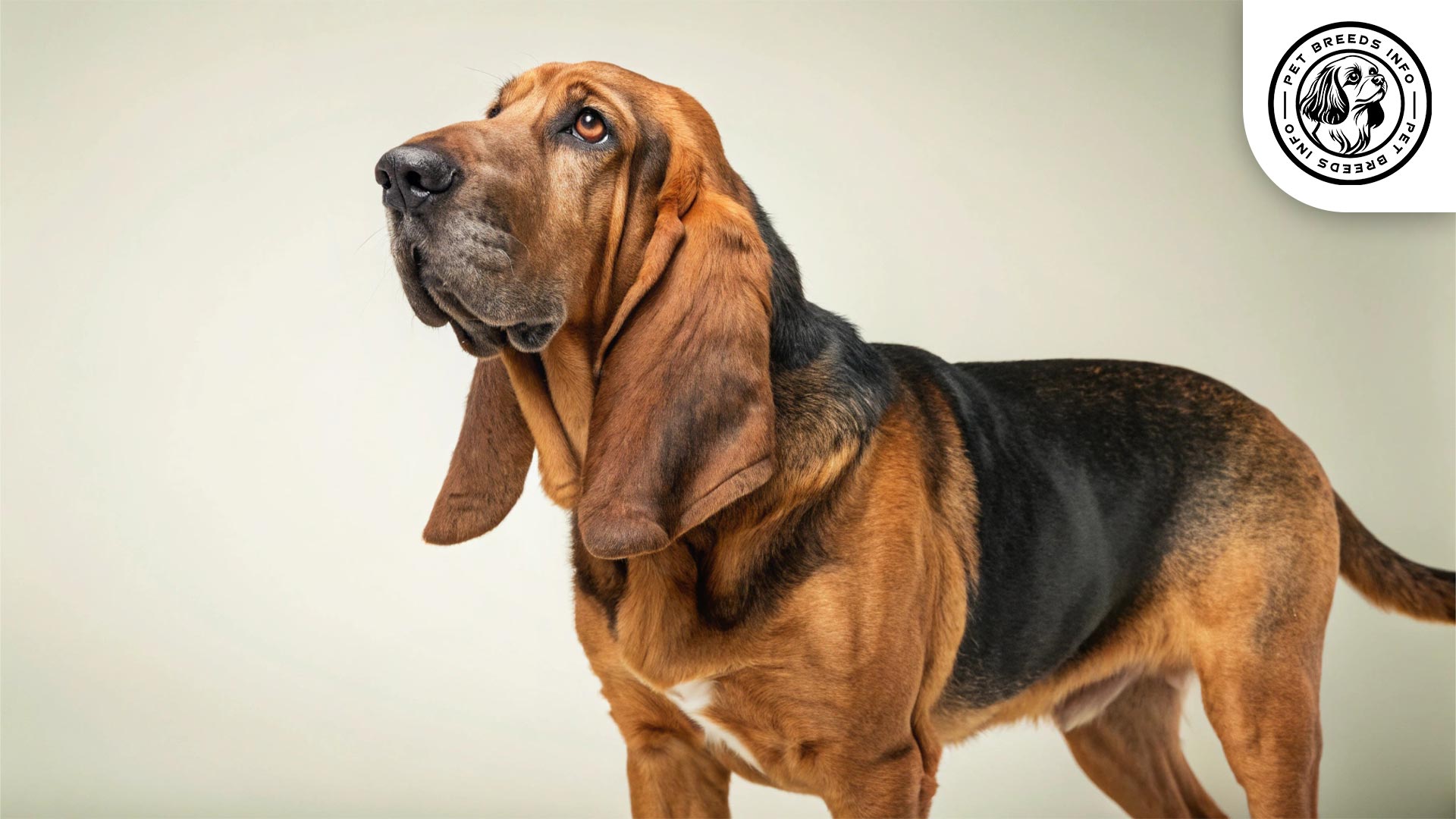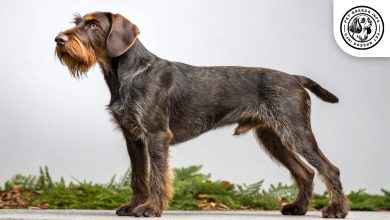Bull Terrier Dog Breed : Size, Health, Price & Personality
General Introduction of the Breed
The Bull Terrier, also known as “Bull Terrier” in many languages, originates from England. Sometimes referred to as the “English Bull Terrier,” this breed has a distinctive appearance and vibrant personality.
Originally bred in the 19th century for bull-baiting and later as a companion and show dog, the Bull Terrier is a result of crossing Bulldogs with various Terriers. Over time, breeders refined its traits, leading to today’s friendly and muscular breed.
Table of Contents
| Weight | 45-70 lbs (20-32 kg) |
| Lifespan | 12-14 years |
| Diet | High-quality kibble, wet food, or raw diet; portion control is crucial |
| Care | Regular exercise, occasional brushing, dental care, nail trimming, ear cleaning |
| Health | Prone to deafness, heart disease, kidney issues, and skin allergies |
| Color | White, brindle, fawn, black, red, or combinations of these |
| Nature | Energetic, affectionate, intelligent, playful, stubborn |
| Price | $1,200 – $3,000 from breeders; $200 – $500 for adoption |
Physical Characteristics
Bull Terriers are medium-sized, muscular dogs with a unique egg-shaped head.
Males typically stand between 21 to 22 inches (53-56 cm) tall and weigh around 55 to 70 pounds (25-32 kg). Females are slightly smaller, measuring 20 to 21 inches (51-54 cm) in height and weighing 45 to 65 pounds (20-29 kg).
They have short, flat, and glossy coats available in a variety of colors, including white, brindle, fawn, black, red, or a combination of these.
Their eyes are small, dark, and triangular in shape, while their ears are naturally erect and pointed. The tail is medium in length and tapers to a point.
The most distinctive feature of this breed is its elongated, oval-shaped head with a downward-sloping profile.
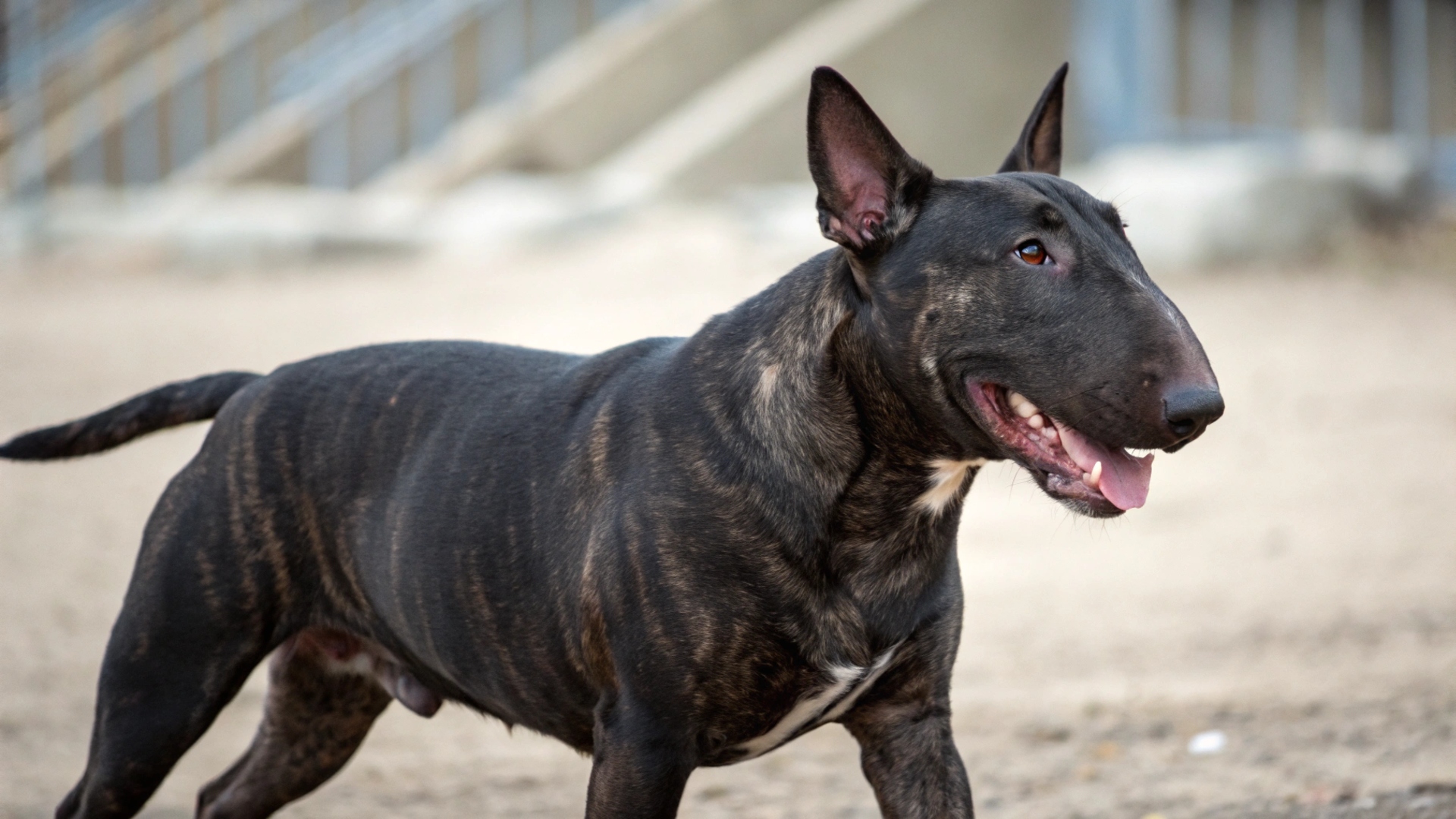
Personality and Temperament
Bull Terriers are highly intelligent and eager to learn, but they can also be independent and stubborn, requiring firm training.
They are energetic and require regular physical activity to stay happy and healthy. Without enough exercise, they may become restless.
These dogs form strong bonds with their owners and are loving companions. They thrive on human interaction and dislike being left alone for extended periods.
They are generally friendly with people and children but require socialization to get along well with other pets. Due to their powerful build, supervision around young children is recommended.
Although playful, they have a strong prey drive, so smaller animals should be introduced carefully.
Bull Terriers are sensitive to changes in their environment and do best in a stable household with a consistent routine.
Read More: Black Russian Terrier
Care and Maintenance Requirements
Regular exercise, including walks, playtime, and mental stimulation, is necessary to prevent boredom and destructive behavior.
They can live in apartments if adequately exercised but ideally require access to a yard or open space.
Their short coat is easy to maintain with occasional brushing. They shed moderately and only require occasional baths.
They are moderately tolerant of heat but may struggle in extreme cold due to their short coat.
Basic hygiene, including brushing their teeth, trimming their nails, and cleaning their ears, should be part of their routine care.
Diet and Nutrition
Bull Terriers do well on high-quality dry or wet dog food. Some owners opt for raw or natural diets with lean protein sources.
Portion control is important, as they can prone to obesity. Feeding them two meals per day is recommended.
Certain human foods like chocolate, onions, garlic, and grapes should be avoided as they can be toxic.
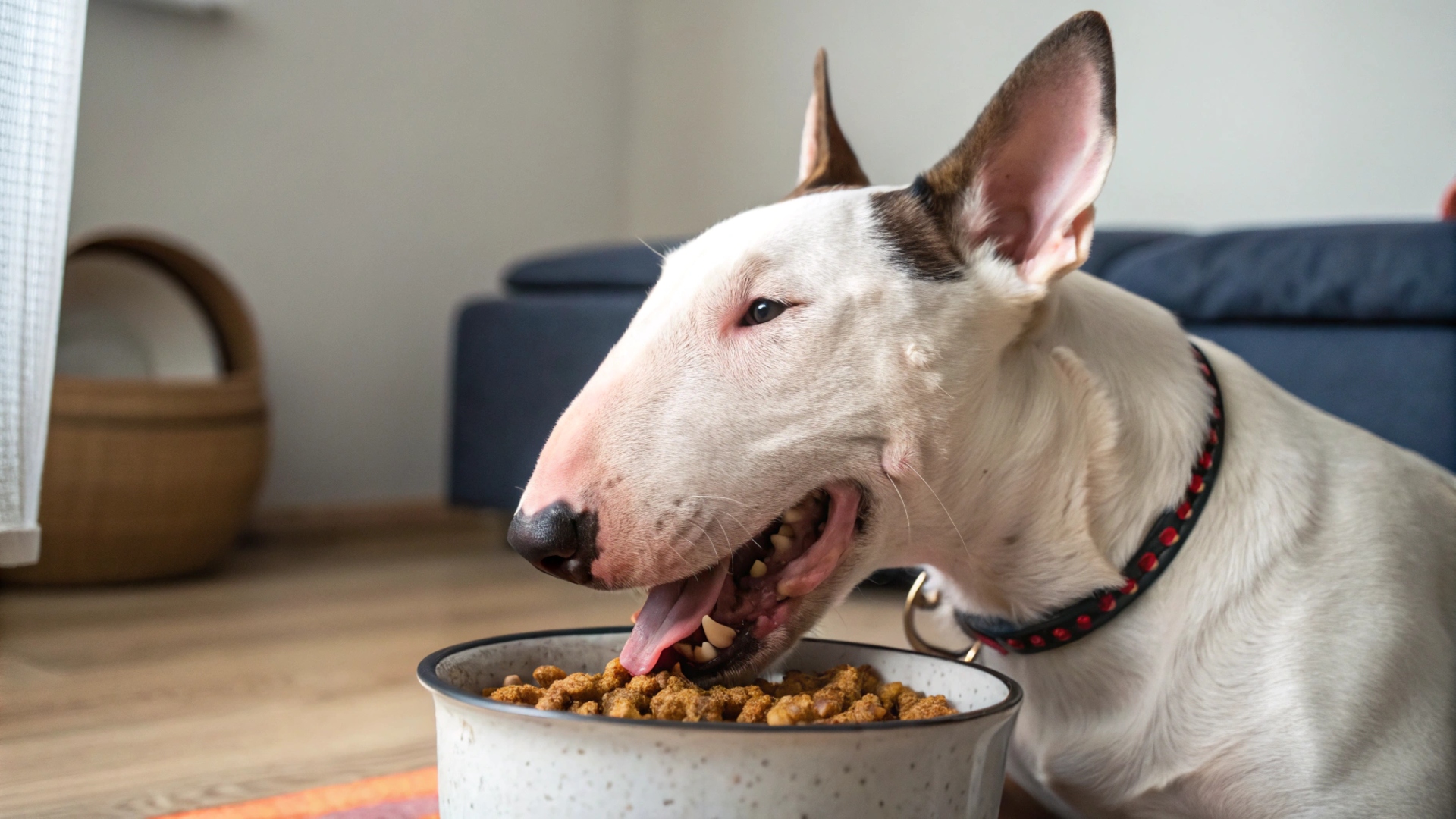
Health and Common Medical Issues
Bull Terriers are generally healthy but may be prone to genetic conditions such as deafness, heart disease, kidney issues, and skin allergies.
They have an average lifespan of 12 to 14 years with proper care.
Regular veterinary check-ups, vaccinations, and parasite control are essential for maintaining their health.
Training and Behavior Management
Training a Bull Terrier can be challenging due to their strong will. Positive reinforcement and consistency are key.
Early socialization with different people, pets, and environments helps develop a well-behaved dog.
Patience and firm but gentle training methods work best when teaching commands and obedience.
Read More: Border Collie Dog
Interaction with Other Animals and Humans
Bull Terriers are generally affectionate with children, but their strong and playful nature may be overwhelming for very young kids.
With proper socialization, they can live with other pets, although their strong prey drive might be an issue.
They are well-suited for active families or individuals who can provide the companionship and training they need.
They have a loyal and attached personality, often forming deep bonds with their owners and preferring constant engagement.
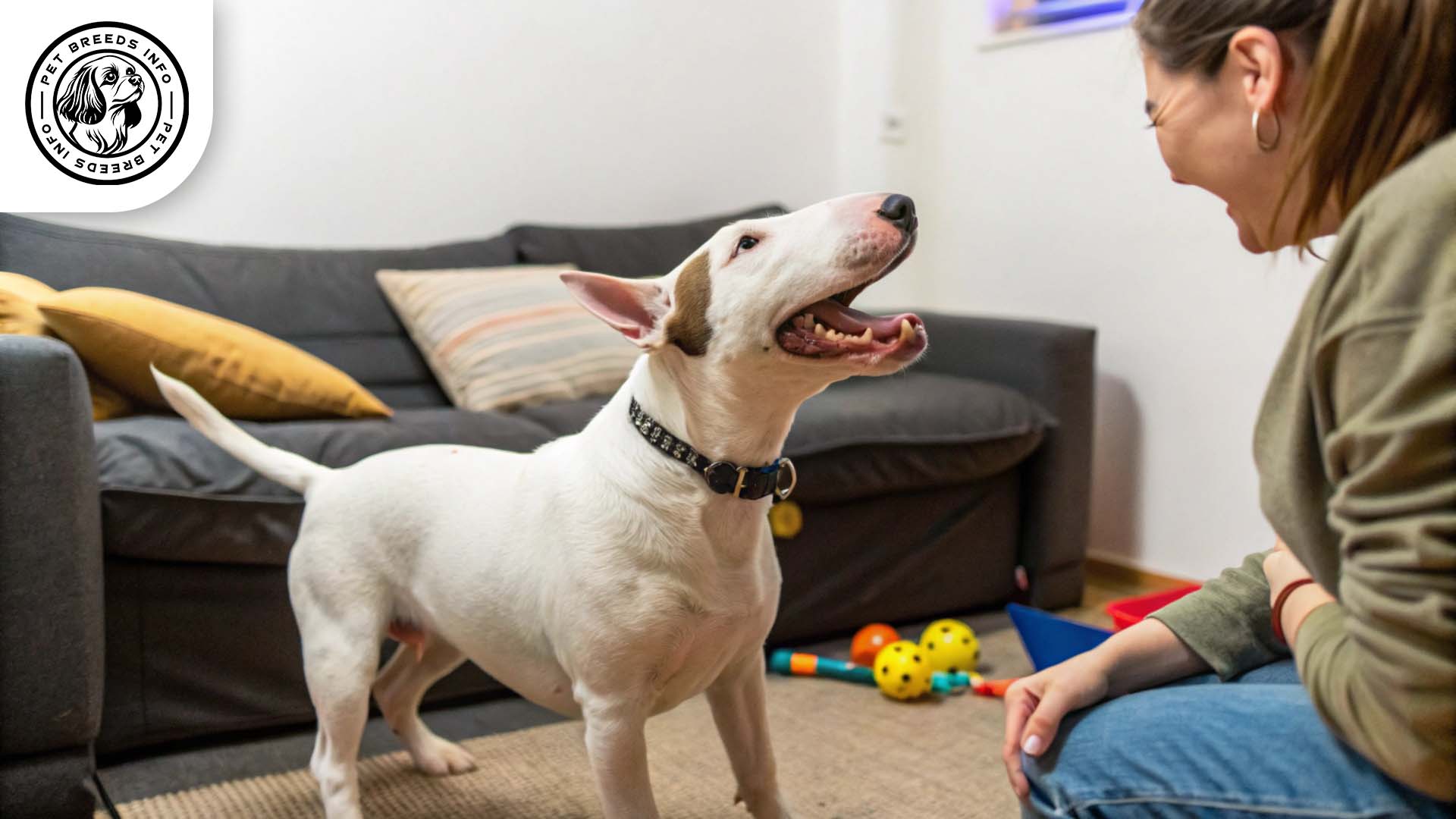
Price and Availability
The cost of purchasing a Bull Terrier from a reputable breeder typically ranges from $1,200 to $3,000, depending on lineage and location.
Adopting from a shelter or rescue organization can be a more affordable option and usually costs between $200 to $500.
Potential owners should ensure that breeders adhere to ethical standards and provide health screenings.
Read More: Boston Terrier Dog
Conclusion and Final Thoughts
The Bull Terrier is a loyal, playful, and affectionate breed that thrives with active owners who provide proper care and training.
They require an environment where they receive plenty of exercise, structure, and human interaction.
Potential owners should consider their energy levels, training needs, and possible health issues before deciding to bring one into their home.
With the right commitment, a Bull Terrier can be a fun and devoted companion for many years.
FAQ
Are Bull Terriers good family pets?
Yes, they are affectionate and playful but require supervision around young children due to their strength.
Do Bull Terriers get along with other pets?
They can, but early socialization is essential due to their strong prey drive and dominant nature.
How much exercise does a Bull Terrier need?
At least 1-2 hours of daily exercise, including walks and playtime, to prevent boredom and destructive behavior.
Are Bull Terriers easy to train?
They are intelligent but stubborn, requiring patience, consistency, and positive reinforcement.
What are common health issues in Bull Terriers?
They may suffer from deafness, heart disease, kidney issues, and skin allergies. Regular vet check-ups are crucial.
